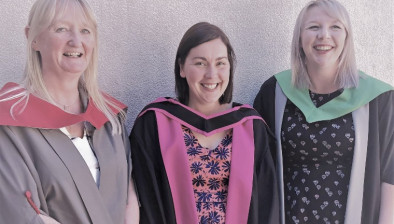Upcoming BBC documentary to examine the causes of building collapse

An upcoming BBC documentary is set to examine the causes of building collapse.
Why Buildings Collapse is currently scheduled to be broadcast BBC2 HD – Tuesday 28th June 2022: 21:30
Reflecting on the first anniversary of the tragic events at Champlain Towers South, where a Miami condominium complex rapidly collapsed, resulting in the death of 98 people, a documentary to be aired on BBC 2 will put UK building maintenance issues into that wider context.
Professor Douglas Robertson, and BEFS director Ailsa Macfarlane, offered comment on the challenges, and future prospects, for the management and maintenance of multiple ownership buildings in Scotland.
Douglas Robertson, honorary professor in the Faculty of Social Sciences at the University of Stirling and author of the report Why Flats Fall Down, said: “71% of traditionally built homes – those constructed pre-1919 – have disrepair to critical elements. The complexity of traditional tenement stock in terms of structure and multi-ownership arrangements, along with inadequacies of management, maintenance, and repair, is driving a worrying growth in disrepair.
“If left unchecked, ongoing deterioration within the overall fabric of many flatted properties will result in more collapses and abandonments.”
Collaborative work in Scotland around tenement maintenance produced recommendations (2019) for: mandatory Owners’ Associations, Building Reserve Funds, and Five Yearly Building Surveys. The Scottish Government workplan in relation to these accepted recommendations is ongoing, including work by the Scottish Law Commission to examine the prospective legislative change necessary for Owners’ Associations.
Ailsa Macfarlane, director of Built Environment Forum Scotland (BEFS), added: “There is a pressing need for better availability of building condition data, along with a recognition of the vital role our existing buildings have in helping to meet net-zero targets.
“As we look to the maintenance, repair, and increasingly the retrofit of Scotland’s traditional buildings, we know that securing the technical skills to work with the historic built environment will be one of the keys to success.
“In Scotland, around 20% of our housing stock is pre-1919, and over 50% is pre-1964. This goes to show the scale of potential for environmental, economic, and social good that could be achieved by action to support and ensure well-maintained and appropriately retrofitted homes.”
It is appreciated that these matters have been, and continue to be, worked on collaboratively. Furthering progress on these important issues will mean highlighting the importance of our existing housing infrastructure as homes, but also the huge potential these buildings have in helping to support economic recovery and a just transition, helping to meet Scotland’s net-zero goals.







